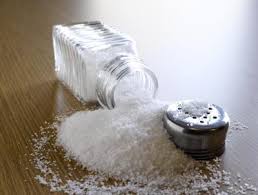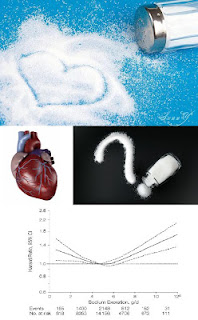World Salt Awareness Week
11th march - 17th march 2013
World Salt Awareness Week was started by the
World Action on Salt and Health (WASH).
World Salt Awareness Week is a key time for consumers to jumpstart their
own diet plan to live a low-sodium lifestyle.
By heeding the following tips individuals will reap the benefits in
the long run by reducing their overall sodium intake which, in turn, may
help lower blood pressure levels, risk of stroke and heart disease.
Read the nutrition label of foods before
purchasing and compare and find
foods that are lower in sodium.
Choose fresh fruits and vegetables.
Limit the amount of processed foods you eat.
Avoid adding extra salt when cooking and/or eating.
Use fresh herbs and spices.
When dining out, specify how you want your food prepared. Ask for your dish to be prepared with less salt.
Try to choose foods with potassium. They counter the effects of
sodium and may help lower your blood pressure.
"Reducing
sodium intake in your diet is one of the most important things you can do to
help you live a longer, healthier life."
View it on slideshare:-
http://www.slideshare.net/ShilpaMittal/salt-awareness-week-tips-to-reduce-sodium
















